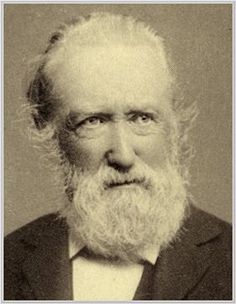I recently finished–and turned in (YAAAY!!) — a story in which several of my characters speak with a regional dialect. The story is set in 1886 in the mountains of western North Carolina. They have lived their entire fictional lives in an area of the country where the use of “ain’t,” and dropping the “g” at the end of an ING word are perfectly acceptable. Instead of “if” they say “iffen,” and they will reckon rather than suppose. Most of these characters can turn a phrase that nails them as being native to the Appalachian mountains. Writing the dialogue for these characters was a delight for me, although I realize not all readers or authors will agree. Some will find it endearing. Others find it grating on their perfect-grammar nerves. You can’t please all the readers all the time. (I think Abe Lincoln said that.)
 When writing in Deep POV, I go a step further. My POV character, James, has lived in this area of the country for all 74 of his years. For him to use perfect grammar would be out of character. Likewise, for him to think with perfect grammar would be unnatural. When I am writing in James’s POV, his narrative reflects the way he speaks. When he observes another person shaking his head in disagreement, James thinks: He waggled his head like he were tryin’ to shake a doodlebug out o’ his ear. This is in the narrative–James’s thoughts, not his dialogue. If I were to re-write this narrative to read: He shook his head in vehement disagreement, it would sound like a narrator was standing backstage with a microphone, telling the reader what James was thinking. It certainly would not sound like James, and I would much rather the reader would see what James is thinking.
When writing in Deep POV, I go a step further. My POV character, James, has lived in this area of the country for all 74 of his years. For him to use perfect grammar would be out of character. Likewise, for him to think with perfect grammar would be unnatural. When I am writing in James’s POV, his narrative reflects the way he speaks. When he observes another person shaking his head in disagreement, James thinks: He waggled his head like he were tryin’ to shake a doodlebug out o’ his ear. This is in the narrative–James’s thoughts, not his dialogue. If I were to re-write this narrative to read: He shook his head in vehement disagreement, it would sound like a narrator was standing backstage with a microphone, telling the reader what James was thinking. It certainly would not sound like James, and I would much rather the reader would see what James is thinking.
I want my character’s narrative to sound so much like him that even if I don’t mention his name in the first sentence of the scene, the reader will know immediately that it’s James. This helps build a relationship between the reader and the character–and believe me, James is a beloved character. He is the kind of person with whom you wish you could sit down and ask for his advice. He may not sound like a Philadelphia lawyer, but his wisdom is vast. This is why I want to use regional dialects even in the narrative portion of the story. It helps the reader become acquainted with the character, and as the story progresses, the reader recognizes the character. By the end of the story, the reader sorrows just a little to turn the last page because she will miss that character.
The relationship between the reader and the characters is what will motivate that reader to look for your next book, because she will know there are new friends to be made in a book with your name on the front.






One Response to REGIONAL DIALECTS–yay or nay?